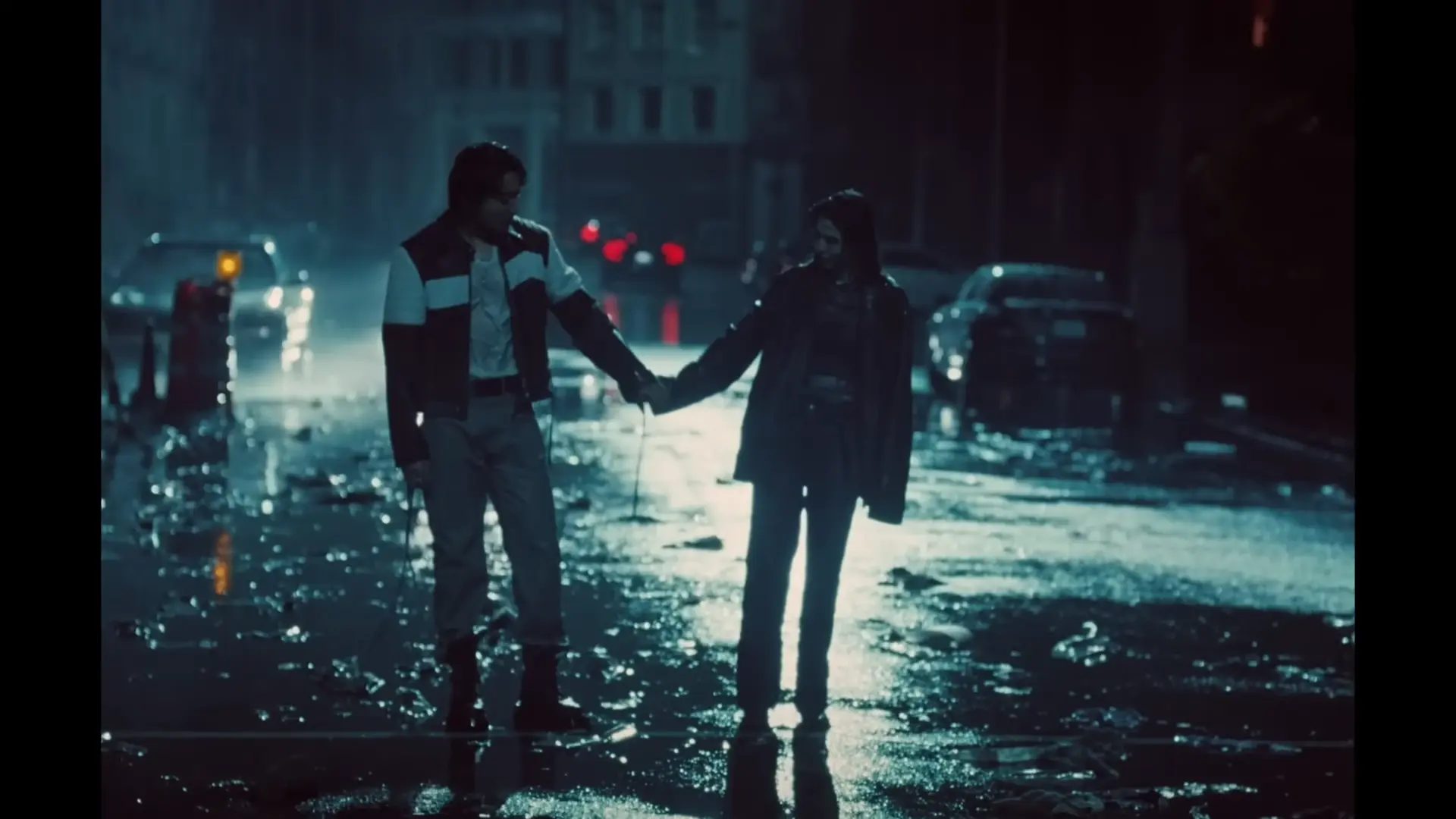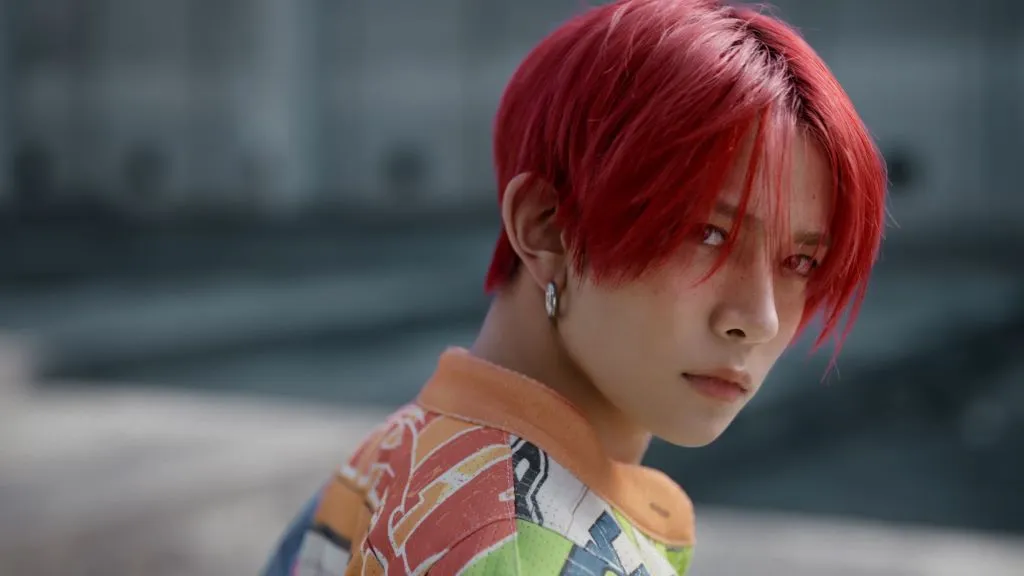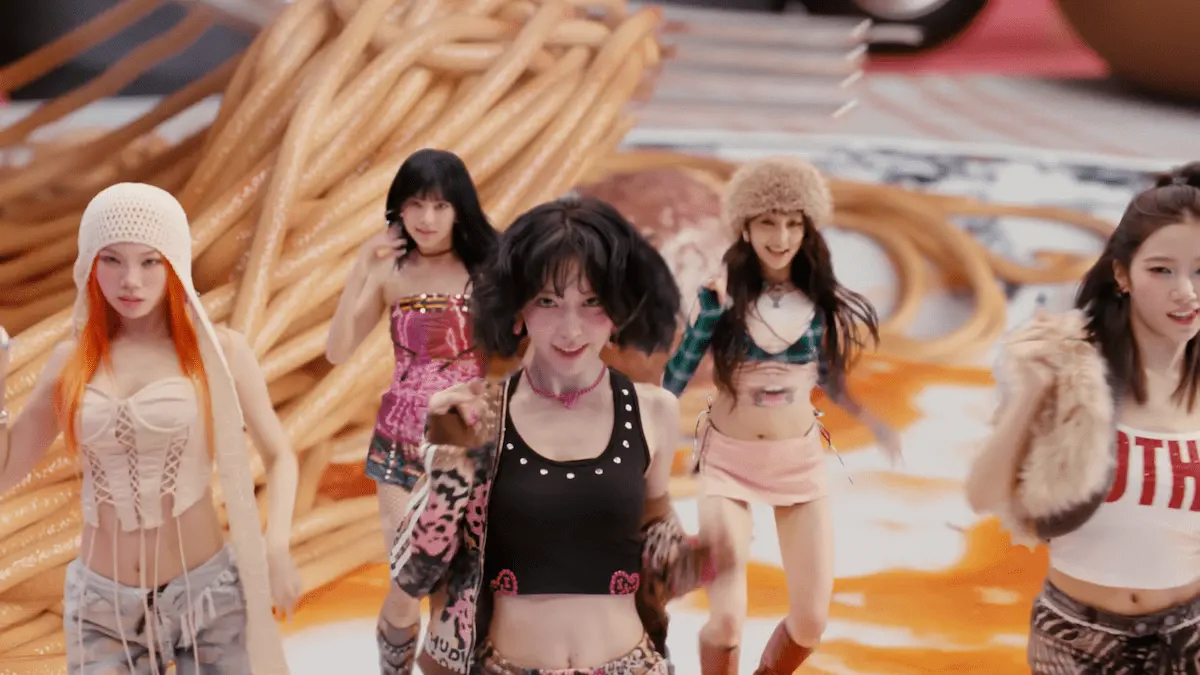Jungkook 'Seven' Explained: A Week of Catastrophic Devotion
Let's be real, 'Seven' wasn't just a solo debut; it was a global event. But beyond the record-breaking streams is a music video that asks one simple question: how much chaos can one man endure for love in a single week? The answer, it turns out, is a lot. We're diving deep into the song that redefined a superstar and the hilariously disastrous visual story that made it unforgettable.

Source: Official HYBE LABELS YouTube (© BIGHIT MUSIC)
Table of Contents (Find Your Story)
Quick Summary: The Vibe Check
‘Seven’ pairs a smooth, infectious UK garage-pop track with a slapstick comedy music video. While the song is a passionate serenade about wanting to be with your lover 24/7, the video shows Jung Kook’s hilariously disastrous, near-immortal attempts to win over his fed-up girlfriend, played by Han So-hee. It’s a brilliant contrast that showcases his star power, comedic timing, and a bold new direction for his solo career.
Credits
The Story You See on Screen: A Week in Chaos
The music video unfolds like a chaotic romantic comedy, structured by the days of the week. It begins on Monday with Jung Kook and Han So-hee arguing in a fancy restaurant. As he pleads his case, the very restaurant begins to fall apart around them, setting the tone for the week. On Tuesday, he clings precariously to the outside of a speeding train she’s on, serenading her through the window without a hint of fear.
The catastrophes escalate. Wednesday finds him in a flooding laundromat at (0:58), desperately trying to apologize. By Thursday, he’s swept up in a hurricane, clinging to a sign that rips away from a building, all while maintaining eye contact. The slapstick peaks on Friday when he’s hit by a car, only to be carted away on a stretcher, sit bolt upright, and continue singing. The week culminates in his own funeral on Sunday at (2:40), where he pops out of his coffin, much to Han So-hee’s exasperated disbelief. Finally, as he walks through the raging storm, she gives in, reaching out to take his hand. His insane, undying devotion… actually worked.
Lyrics & meaning: The Duality of Devotion
Lyrical Story & Narrative
At its core, the song is a straightforward and potent declaration of all-consuming passion. The lyrical structure itself is a promise: the relentless, cyclical repetition of the seven days of the week acts as a binding oath, suggesting a love that never rests. It’s a modern serenade that frames devotion not as a fleeting feeling, but as a full-time, unbreakable schedule. The lyrics ground this grand promise in tangible, intimate moments. Lines like, "Weight of the world on your shoulders / I kiss your waist and ease your mind," shift the scale from an epic, week-long commitment to a single, gentle, and incredibly personal gesture of care.
The narrative is not one-sided. Latto’s feature verse is a crucial piece of the story, providing a confident and assertive response to Jung Kook's plea. She takes control, matching his energy with lines that speak of her own standards and desires, such as "Take me to paradise / 'Cause I don't wanna wait, I don't wanna wait no more." Her verse transforms the song from a serenade into a dynamic conversation between two equals who are fully aware of their mutual attraction. It adds a layer of mature, consensual passion that elevates the entire track beyond a simple story of pursuit.
The Intent Behind the Hook & Cultural Nuance
The hook, "Monday, Tuesday, Wednesday, Thursday, Friday, Saturday, Sunday... Seven days a week," is deceptively simple. Its genius lies in its universality, tying his devotion to a global concept. However, the song's true cultural brilliance is in the strategic release of "Clean" and "Explicit" versions. The clean version is a passionate pop serenade. The explicit version, swapping "lovin'" for a direct f-bomb, transforms it into a raw, unabashedly sexual anthem. As a listener, you can almost feel the playful smirk behind the delivery, inviting you to choose your own adventure: a sweet declaration or a straight-up booty call anthem.
This duality was a masterstroke for Jung Kook's transition as a solo artist. For Western listeners, the explicit lyric feels standard for pop, but in the K-Pop context, it was a bold, headline-making choice. It was a deliberate signal of his evolution from BTS's "golden maknae" to a mature adult artist exploring grown-up themes. This move brilliantly acknowledged his artistic growth while still providing a radio-friendly option for a broader audience, sparking global conversation and defining a new, unapologetic era for a superstar.
Beneath the Surface: A Multi-Layered Analysis
1. Cinematic Direction: A Rom-Com Against All Odds
Directed by the duo Bradley & Pablo (known for their work with Harry Styles and Rosalia), the video was intentionally designed as a short film. The casting of Han So-hee, a major Korean actress known for strong and independent roles in dramas like ‘My Name,’ elevated the project from a music video to a blockbuster collaboration. The comedic, almost cartoonish violence is a deliberate subversion of the “serious artist” trope. This slapstick energy mirrors classic 2000s romantic comedies like Mr. & Mrs. Smith, where extreme situations are used to test a relationship’s limits. Jung Kook embraces the role of a lovable, indestructible fool for love, making his character far more memorable and endearing than a typical stoic pop star.
2. The Sound: UK Garage Meets Global Pop
The track’s foundation is a breezy, infectious UK garage beat, characterized by its syncopated 2-step rhythm and light acoustic guitar loop. This choice was pivotal. Instead of opting for a heavy trap or EDM sound, the production gives the song a sophisticated, trendy, and distinctly international feel. It’s easy-listening but rhythmically complex enough to be interesting, making it perfectly suited for both radio airplay and TikTok virality. The clean production by Andrew Watt and Cirkut provides a smooth canvas for Jung Kook’s silky vocals, allowing his performance to be the undeniable centerpiece.
3. Performance: The Art of Comedic Timing
This music video is arguably one of the strongest acting performances from a BTS member to date. Jung Kook’s deadpan delivery in the face of absolute chaos is the core of the video’s humor. His ability to maintain a sincere, pleading expression while a storm rages or after being hit by a car showcases a remarkable understanding of physical comedy. His chemistry with Han So-hee is palpable; her perfect portrayal of exasperation is the ideal foil to his relentless, puppy-dog devotion. It’s a performance that solidifies his identity as not just a vocal powerhouse, but a charismatic, multifaceted entertainer.
Cultural Significance: More Than Just a Hit
“Seven” wasn’t just a successful solo debut; it was a cultural and industrial milestone. Its debut at #1 on the Billboard Hot 100 (as reported by Billboard and others) was a monumental achievement, solidifying K-pop’s position as a dominant force in the global music market, independent of group activities. The song demonstrated that a K-pop soloist could not only compete but triumph at the highest level of Western pop, thanks to a combination of an English-language track, a strategic collaboration with a rising Western artist (Latto), and a universally appealing concept. It set a new benchmark for what a solo K-pop artist could achieve, proving that their individual star power could translate into mainstream chart-topping success on a global scale.
You Might Also Like
Fan Takeaways
For fans, ‘Seven’ was a landmark moment. It was the official launch of Jung Kook’s solo identity outside of BTS, and it exceeded all expectations. The decision to embrace a comedic, story-driven MV was celebrated for showing a different side of his personality—playful, charming, and unafraid to look a little silly. The chemistry between Jung Kook and Han So-hee became an instant fan-favorite element, with many praising their dynamic as the perfect mix of exasperation and affection.
Ultimately, the song and MV combo is still beloved because it feels authentic to Jung Kook’s energy: incredibly talented and hardworking, but also genuinely funny and down-to-earth. It proved that a global pop hit doesn’t have to take itself too seriously. And frankly, that playful authenticity is exactly why we love him.
Frequently Asked Questions (Q&A)
What is the main theme of Jung Kook's 'Seven' MV?
The 'Seven' MV is a comedic take on extreme devotion, showcasing Jung Kook's hilariously disastrous, near-immortal attempts to win over his girlfriend over the course of a week, contrasting with the song's passionate serenade.
What is the significance of the "Clean" vs. "Explicit" versions in 'Seven'?
The duality allows the song to be both a radio-friendly love song and a raw, unapologetically sexual anthem, signaling Jung Kook's maturity as an artist while respecting a broader audience. It was a bold move in the K-Pop context that sparked global conversation.
Who directed the 'Seven' music video?
The 'Seven' music video was directed by the acclaimed duo Bradley & Pablo, known for their cinematic and often surreal visuals in works with other global artists like Harry Styles and Rosalia.




Comments